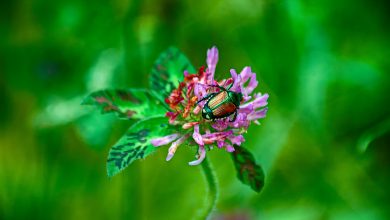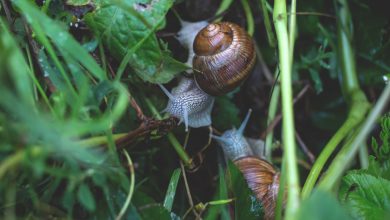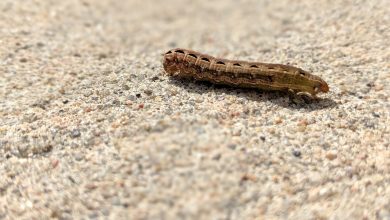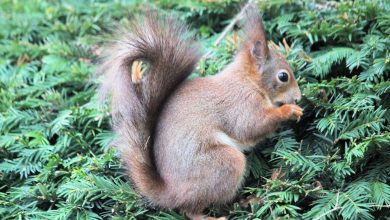How to Protect Your Garden Against Animals
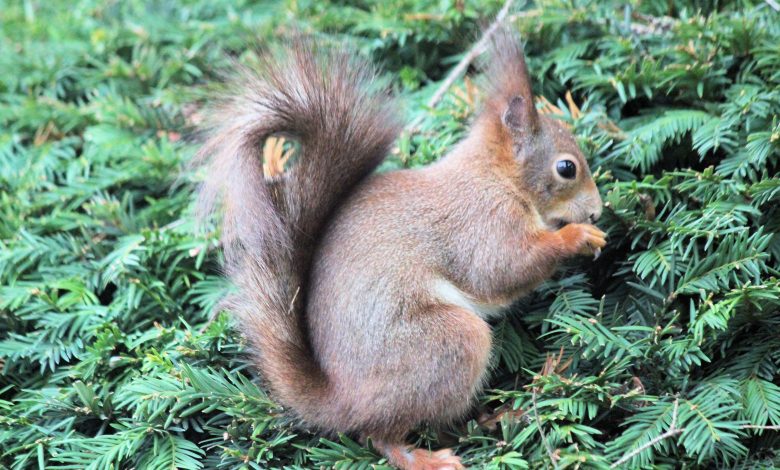
After tilling the soil, planting, wetting, and carrying out all other forms of tedious activities on your garden, a pest can just come around and eat up all your effort. How do you feel in this case? Has this ever happened to you?
Perhaps, you don’t even know the kind of animals that run your farm for you when you’re away from home or indoors and asleep. Well, this depends on where you live, but there is a list of animals that people have constantly reported.
Perhaps you would like to know those enemies of your herbs before learning how to ward them off your garden?
- Rabbits: Rabbits are very fast eaters. They can consume half the flowers, leaves, and even stems in your garden within the twinkle of an eye. Their presence on your garden actually means a lot of ruin would be done to almost all that you have been working on for a while.
- Voles: Voles eat and leave nothing for you, irrespective of what season they come to your garden. During winter, voles savor on the tulip bulbs in your garden arduously. They pay your garden an uninvited visit as your plants start growing. These uninvited guests eat up your carrots, beets, and radishes. Other rodents carry out devastation either similar or worse in measure than what voles do on plant and garden herbs. Well, there was hardly anything you could do about their presence but it will all become a different story soon.
- Raccoons: With raccoons around, your herb garden suffers near annihilation. They steal your corn and cart away your berries while snacking on other fruits in the garden. The level of attack that these animals launch on gardens has made many people give up on gardening. After all, who would farm for animals that wouldn’t benefit them in any way?
- Deer: Your hostas, tulips, and every bit of green you have in your garden are within a dangerous zone once deer enter. While one is enough to launch this devastation, they can come like a herd and start eating up all green in the garden. Imagine everything you planted disappearing at once, as if some strange elements have come to harvest it all. This will cause a whole lot of depression, considering the effort. You absolutely need to find a way to protect your effort against deer.
- Groundhogs: Groundhogs don’t only attack the herbs in your garden, but also burrow the earth, destroying the plants, and even the future of the garden. Anyone who holds their garden dear always seeks ways to get rid of the animal.
- Chipmunks: Like groundhogs, chipmunks dig. They consume budding plants and uproot your bulbs for consumption. They don’t only come to steal, but to destroy and kill your seeds.
- Squirrels: Although very small, squirrels are wise enough to save for winter, and they do this during fall. Where do they get what they save? Of course, they all are from your garden. They attack fruits and seeds, and scuttle away with them. This destructive attack doesn’t even stop during this time. They also attack in dry periods, leaving only the winter to tend your garden. But does winter allow this? No.
This unveils how important it is to protect that garden against these little devils, else your garden is on a time bomb.
Whether your garden is attacked by raccoons, squirrels, voles, deer, or rabbits, one thing is very important. Seek how you can get rid of those animals. You risk losing your garden to them if you don’t take the necessary steps fast.
Since the animals have different sizes and forms, attack in different ways, and eat different items in the garden, there are different ways you can ward them off your garden.
Let’s see how you can rid of each garden pest we have above.

How to Protect Your Herb Garden Against Rabbits
There are different techniques with which you can control rabbits and make them stay away from your garden. If you’ve seen a rabbit for once, you will realize that they are usually shy and fearful. You can use this against them. Weed your garden constantly, such that it becomes spacious and there are no unwanted plants on it. Once you have done this, your garden hardly becomes a subject of interest to rabbits. By this time your plants grow, it becomes tough for rabbits to stiff from. In fact, they would prefer to go elsewhere to get tender plants to eat from.
Some gardeners prefer to plant clovers and Alfalfa in their garden so rabbits consume those instead of attacking other plants in the garden, while others plant herbs, such as rosemary, thyme, and sage, which rabbits don’t like feeding on. Also, you can plant onions and garlic. If you plant these around any of the herbs you primarily want in your garden, they will ward off rabbits from your garden, and then you can expect a bounty harvest.

How to Protect your Herb Garden Against Voles
Despite how unpopular, voles are very inimical to many of your garden herbs, and it’s important to get rid of voles as quickly as possible. Well, you may feel like you want to know them, but the most important thing is to make them stay away from your garden. Their disastrous imprints are usually seen on gardens and lawns, if not quickly controlled.
Weeding your garden constantly is one of the best methods of keeping voles away from your garden, as they become uncomfortable when there’s no place to hide. Another preventive measure to take is to lightly mulch the garden, such that the voles don’t hide under the mulch.
Traps, poisons, and fencing are other practical methods that people use. Many have appraised Warfarin for its effectiveness in controlling voles and related pests.

How to Protect Your Herb Garden Against Raccoons
Apart from the fact that raccoons consume your garden herbs, they usually are carriers of different diseases, including rabies. Since they are omnivorous, they eat both flesh and garden herbs, so it’s very important to prevent or get rid of them.
You can ward raccoons off by first raising a fence around your building and your garden. The fence must be electrified so it electrocutes whatever is trying to jump over or get in from under. Electric fences also effectively keep raccoons away from your fish pond.
Also, you don’t want raccoons to have access to food outside your compound. The consequence of this is that more of the animals come around, and before you know it, your compound becomes den to a whole lot of them. But the fence approach still remains the best.

How to Get Rid of Deer
Although cute, deer are no good friends when they pay your garden a visit. As a result, you probably can’t wait to get rid of them from your garden.
Deer hate noises and can get really scared by them. Devise a way of getting rid of them by making some noises, perhaps using a trumpet or so. Some garden owners even install sensors that react to trespassing by making a very loud noise, which has been effective.
Some people use flashlights. Deer are thieves. They come mostly when it’s dark and flee once they see light. Therefore, using the flashlight method can as well be effective. You can hang CDs you’re not using on twigs so they reflect the light more powerfully. This really keeps them away.

How to Get Rid of Groundhogs from Your Herb Garden
Groundhogs are similar to voles in the aspect of diligent burrowing. They munch on your herbs and also deform the landscape. You have no reason not to seek the most effective ways to get rid of groundhogs.
For the sake of animal rights, you may not want to kill a groundhog eating away your year-round efforts. Groundhogs are usually attracted to scenting food. You can put some bait in a trap to capture them. After the catch, you can drive a far distance and let them out of the trap inside some woods and wave them bye.
Groundhogs are no friends with either cats or dogs. Since neither of those is herbivorous, you can keep one or both in the garden to ward off the strangers from your territory.
Some garden owners shoot and make meat of them, but if you don’t want to, you can as well make an electric fence around your compound. This is another highly reliable way of getting rid of groundhogs.

How to Get Rid of Chipmunks from Your Herb Garden
Albeit charming in look, we all know chipmunks aren’t friends when they enter your garden. Whenever you remember their destructive impacts, don’t you feel like warding them off your garden? There are ways you can.
As it applies to others, fencing animals out of your garden is a highly effective method to get rid of them. As said earlier, ensure the fence is electric.
If you can’t afford this, some gardeners use medicated powder or chili to make chipmunks avoid their gardens. If this method doesn’t work, there is a trick. Some brands make a spray from the urine of animals like cats and foxes. Buying any of these and spraying on your garden will scare away wise chipmunks thinking danger is looming.

How to Get Rid of Squirrels from Your Herb Garden
Squirrels are smart harvesters and eaters of your farm buds, nuts, and leaves. You don’t want to have them in your garden longer than usual. If you see cracked nuts and shells in your garden, it’s possible you’re hosting squirrels already. Sweeping away their food could really be helpful. They don’t retire so fast. So once you do this, they may target your trash can to eat leftover foods and all. Ensure the can is properly secured. With nothing to eat, they find a different place.
Like groundhogs, the urine of predators sets squirrels on their heels. No one seeks food when the danger of predatory animals dangles right above.
Successful gardening is really an enjoyable experience, but for the pests that attack them. Since an attack on your effort is an attack on you, you cannot but seek ways of getting rid of those pests. Use pest-control urine, use peppery repellant, or build an electric fence around your garden. With those methods diligently followed, you can as well wave pests away.
